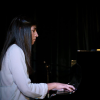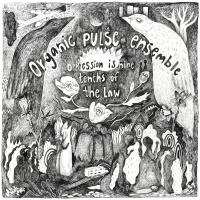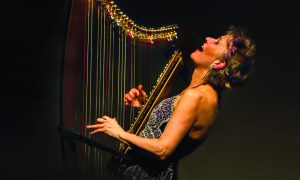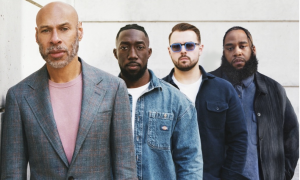In the lush soundscape of jazz fusion, where the essence of music melds with innovation, Marcela Bastida stands as a beacon of creative brilliance and resilience. Despite her legal blindness, Marcela has not only mastered the realms of jazz as an internationally acclaimed pianist and arranger but has also revolutionized assistive music technology for visually impaired musicians worldwide.
In the lush soundscape of jazz fusion, where the essence of music melds with innovation, Marcela Bastida stands as a beacon of creative brilliance and resilience. Despite her legal blindness, Marcela has not only mastered the realms of jazz as an internationally acclaimed pianist and arranger but has also revolutionized assistive music technology for visually impaired musicians worldwide.
“Discovering assistive music technology was like finding my true voice in music,” Marcela reflects. “It gave me the freedom to express my musical vision fully.”
As a result, Marcela took on the role of official Berklee ambassador, bringing the Berklee Assistive Music Technology Lab to Mexican educational institutions, including the Universidad de Nuevo Leon in Monterrey. This marked the first time Berklee presented its Assistive Music Technology Lab abroad, and Marcela was the perfect representative to lead this initiative.
“This was a pivotal moment not just for me, but for the future of assistive labs worldwide,” Marcela asserted with conviction.
Her journey took an exhilarating turn when she was invited to join The Attempted Band, a preeminent Bangladeshi music ensemble. As their chief arranger and pianist, Bastida injected new vitality into the band by fusing Bangla rock with the sophisticated harmonies and rhythms of jazz. This unusual synthesis wasn’t just a gimmick; it was a calculated risk that paid off. Tracks like "Rajkumari," lauded by critics as “hauntingly beautiful,” and "Doura Picchi," acclaimed across Bangladeshi media, exemplified her genius.
More than just creating memorable music, Bastida subtly paid homage to the historical underpinnings of Bangla rock’s Civil Rights movement, embedding layers of cultural resonance in her work. This intersection of diverse sounds and socio-political undertones transformed The Attempted Band into global ambassadors of a new musical genre. The buzz surrounding the band’s upcoming concert at Boston’s Paradise Rock Club is undeniable. The program, titled “The Attempted Band Greatest Hits—From ‘Rajkumari’ to ‘Doura Picchi,’” promises to be a milestone event, delivering culturally rich Bangla rock compositions to American audiences for the first time.
Marcela is also poised to introduce her own jazz ensemble at The Lilypad in Cambridge, a venue celebrated worldwide and recognized by DownBeat Magazine and All About Jazz as a top global jazz club. Her upcoming performances aim to be a culmination of her broad musical explorations, utilizing her expertise in assistive music technology to shape her compositions and performances. This next phase in her career is an exciting fusion of her past experiences and ongoing innovations in jazz, promising to offer fresh, technologically-enhanced interpretations of jazz standards and new compositions.
“Assistive technology isn’t just a tool; it’s a gateway to vast opportunities, enabling blind musicians to not only participate but excel in the competitive landscape of the music industry,” Marcela states. All Newton Music School, rooted deeply in its tradition of "music for all," provides the perfect backdrop for Marcela’s transformative work. The school, founded in 1912, has long been a pillar of educational excellence and inclusivity. With Marcela’s new courses, the institution will continue introducing and integrating assistive music technology into music education.
As Marcela Bastida continues to redefine the boundaries of jazz and music technology, her journey epitomizes the triumph of the human spirit and creativity over disability. Her unwavering determination and innovative spirit have not only shattered traditional limitations but have also paved the way for others to follow. Marcela's profound impact on the music world and her pioneering efforts in music education for the visually impaired serve as a powerful reminder that with passion and perseverance, any obstacle can be transformed into a groundbreaking achievement.
Early Musical Calling
Marcela’s journey began amidst the bustling streets of Mexico City. At the tender age of six, piano keys under her fingers felt like home, guiding her into a world where sight was irrelevant. By 16, she was already leading the musical life at the prestigious Rosedal Vista Hermosa, captivating hundreds with her performances at outdoor Masses—a teenaged legally blind maestro commanding the choir with innate grace and confidence.Berklee and Beyond: Breaking New Ground
Declaring her wish to become a professional musician, the defining moment arrived with a merit scholarship to Boston’s prestigious Berklee College of Music. Imagine a young girl navigating a foreign city while simultaneously delving into the depths of musical academia. It was here, amid Berklee’s cauldron of creativity, that Bastida discovered assistive music technology—a tool that would serve as her equalizer in a sighted world. This technology became her conduit, effectively removing any limitations her visual impairment might have posed and enabling her to compose and arrange for jazz orchestras and big bands without constraints.“Discovering assistive music technology was like finding my true voice in music,” Marcela reflects. “It gave me the freedom to express my musical vision fully.”
Advancing Assistive Music Technology
Within just a year of embracing assistive music technology, Marcela rose to become a leading instructor at Berklee’s Assistive Music Technology Lab. She taught students—many older than herself—specialized software and techniques essential for audio recording, production, music scoring, and Braille music. Additionally, the developers of Sibelius, a premier music score writing program, invited her to participate in a collaborative initiative with Avid Technology and Berklee to enhance accessibility for visually impaired composers.As a result, Marcela took on the role of official Berklee ambassador, bringing the Berklee Assistive Music Technology Lab to Mexican educational institutions, including the Universidad de Nuevo Leon in Monterrey. This marked the first time Berklee presented its Assistive Music Technology Lab abroad, and Marcela was the perfect representative to lead this initiative.
“This was a pivotal moment not just for me, but for the future of assistive labs worldwide,” Marcela asserted with conviction.
A Flourishing Career: Awards and Collaborations
Fully leveraging her newfound capabilities, in 2018, Bastida’s prowess earned her the coveted Melba Liston Award, a biennial honor bestowed on an exceptional female jazz composer. Named after the pioneering African American trombonist and orchestrator Melba Liston, this award became a milestone in Marcela’s career, underscoring her innovative approach to jazz composition and arranging, and establishing her as a formidable force in jazz.Her journey took an exhilarating turn when she was invited to join The Attempted Band, a preeminent Bangladeshi music ensemble. As their chief arranger and pianist, Bastida injected new vitality into the band by fusing Bangla rock with the sophisticated harmonies and rhythms of jazz. This unusual synthesis wasn’t just a gimmick; it was a calculated risk that paid off. Tracks like "Rajkumari," lauded by critics as “hauntingly beautiful,” and "Doura Picchi," acclaimed across Bangladeshi media, exemplified her genius.
More than just creating memorable music, Bastida subtly paid homage to the historical underpinnings of Bangla rock’s Civil Rights movement, embedding layers of cultural resonance in her work. This intersection of diverse sounds and socio-political undertones transformed The Attempted Band into global ambassadors of a new musical genre. The buzz surrounding the band’s upcoming concert at Boston’s Paradise Rock Club is undeniable. The program, titled “The Attempted Band Greatest Hits—From ‘Rajkumari’ to ‘Doura Picchi,’” promises to be a milestone event, delivering culturally rich Bangla rock compositions to American audiences for the first time.
Marcela is also poised to introduce her own jazz ensemble at The Lilypad in Cambridge, a venue celebrated worldwide and recognized by DownBeat Magazine and All About Jazz as a top global jazz club. Her upcoming performances aim to be a culmination of her broad musical explorations, utilizing her expertise in assistive music technology to shape her compositions and performances. This next phase in her career is an exciting fusion of her past experiences and ongoing innovations in jazz, promising to offer fresh, technologically-enhanced interpretations of jazz standards and new compositions.
Legacy and Teaching: Opening Doors for Others
These days, Marcela Bastida is recognized globally not merely for her music but also for her expertise at the forefront of transforming music education for the visually impaired. At the prestigious All Newton Music School, one of the oldest and most celebrated private music institutions in the U.S., Marcela leads the Blind and Visually Impaired Assistive Technology Program. Here, she has developed an innovative curriculum that leverages cutting-edge technology to bridge the gap for visually impaired students in the music field.“Assistive technology isn’t just a tool; it’s a gateway to vast opportunities, enabling blind musicians to not only participate but excel in the competitive landscape of the music industry,” Marcela states. All Newton Music School, rooted deeply in its tradition of "music for all," provides the perfect backdrop for Marcela’s transformative work. The school, founded in 1912, has long been a pillar of educational excellence and inclusivity. With Marcela’s new courses, the institution will continue introducing and integrating assistive music technology into music education.
As Marcela Bastida continues to redefine the boundaries of jazz and music technology, her journey epitomizes the triumph of the human spirit and creativity over disability. Her unwavering determination and innovative spirit have not only shattered traditional limitations but have also paved the way for others to follow. Marcela's profound impact on the music world and her pioneering efforts in music education for the visually impaired serve as a powerful reminder that with passion and perseverance, any obstacle can be transformed into a groundbreaking achievement.



























